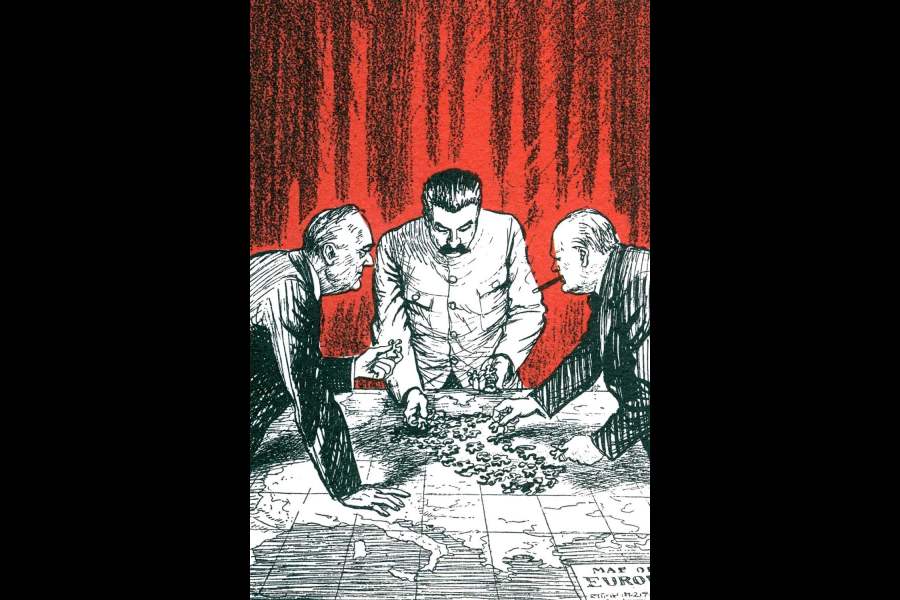Book: THE STALIN AFFAIR: THE IMPOSSIBLE ALLIANCE THAT WON THE WAR
Author: Giles Milton
Published by: John Murray
Price: Rs 999
Speaking before thousands of Harvard graduates in September 1943, Winston Churchill declared that the empires of the future would be the empires of the mind. And nothing provides a more portentous background to this bleak future predicted by the prime minister of wartime Britain than the mind games that defined his relationships with his allies, particularly the one sitting in Moscow, as Hitler embarked upon Operation Barbarossa. Much water has flowed down the Thames since Russia allied with England to combat the spectre of Nazism. Giles Milton hearkens back to those dark days of the war, with its frugal rationing and terrifying air raids, to present a personal picture of the often fractious, always awkward, relationship among the ‘Big Three’: Churchill, Joseph Stalin and Franklin D. Roosevelt.
Written in simple prose, The Stalin Affair is a treasure trove for the discerning history buff. Not because of the exciting details it contains about meetings among powerful men and secret missives between governments but because of the unveiling of the minds of some participants in this so-called ‘affair’. W. Averell Harriman, Roosevelt’s envoy to Churchill and, later, ambassador to Stalin, figures prominently. His ability to build relationships with people combined with an intrepid, can-do attitude contributed enormously to keeping Europe supplied with the material necessary to oppose Hitler and Benito Mussolini.
His daughter, Kathleen — referred to as Kathy — is a “breezily confident” character who worked as a reporter during the Second World War. She intersperses depressing details about Allied losses with insights into the many moods of the influential personalities who walked the corridors of power. Her anecdotal accounts of the dinner tête-à-têtes with the acerbic Churchill make for particularly enjoyable reading and help further solidify Churchill’s larger-than-life personality. A cache of her letters set Milton off on the research project that led to this particular book. Archibald Clark Kerr, a maverick career diplomat with a penchant for “scandalising his peers”, is another vital cog in this political scheme which turned “uncertain allies” into a winning combination. Milton adroitly weaves together the different strands of personal and public happenings — stories of growth, of setbacks, and of “duplicity” — to create a tapestry colourful enough to arrest the readers’ attention.
The end of the narrative, dealing with the retreat of the Soviet Union behind the iron curtain, is excellently sketched. Milton also deserves to be lauded for the importance he accords to the women in this dangerous game — the scribblings of Churchill’s daughter and those of Kathy, along with the lived experiences of journalists like Hilde Marchant (her reportage of the effect the Battle of Britain had on women and children is well-known), transform the narrative into a much more rounded chronicle than, say, a George Smiley novel from John le Carré’s pen.
New wine in an old bottle is perhaps the best way to describe The Stalin Affair. There are innumerable novels to read about Stalin and his dictatorial spectre overshadowing a Nazi-overrun Europe. Very few, though, portray the empires of the mind.











